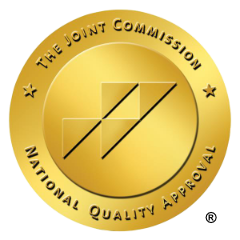PATIENT / VISITOR GUIDELINES
Northwest Florida Community Hospital has been working hard to keep our patients, staff, and community healthy and safe. In response to the recent COVID-19 (Coronavirus) epidemic, we have taken multiple measures and precautions to minimize the spread of this infection.
We are following all recommendations from the Centers for Disease Control (CDC), the Department of Health, Florida Hospital Association and the World Health Organization (WHO). NFCH is prepared for and capable of providing care for patients with all manner of illness, including the COVID-19 virus.
The following are updates to the NFCH Visitor Policy, effective April 2022.
This policy is subject to change based on the risk level for COVID-19 in our area as defined by the Florida Department of Public Health, CDC, and CMS guidelines.
Adherence to this policy will be ensured by the Infection Control nurse.
A Healthy Visitor policy remains in place which may limit those with a cold, cough, respiratory illness, fever or positive Covid test from visiting hospitalized patients or accompanying patients to visits. Visitors and support persons who exhibit COVID-19 symptoms should defer visitation.
Visits for compassionate care, such as an end-of-life situation or a resident in decline or distress, will be allowed at all times for any resident.
THESE GUIDELINES APPLY TO ALL AREAS:
• Visitors are encouraged to follow CDC masking guidelines and masks will be made available at the facility entrance.
• Visitors may be screened for signs/symptoms of communicable diseases per CDC guidelines prior to entering the facility. However, proof of vaccination or immunization is not required.
• Social Distancing is highly recommended in all patient waiting areas.
• Hand Hygiene is strongly encouraged. Please perform hand hygiene when touching any surface and/or entering or leaving any rooms
• Patients may designate one (1) essential caregiver. The essential caregiver will be allowed at least two hours of daily visitation, regardless of any other visitation. The essential caregiver need not provide care to a patient, and providers may not require the essential caregiver to provide care.
• Families are encouraged to participate in the care and comfort of their loved ones throughout their stay. At times, another patient may require privacy or confidentiality. At those times, family members will be asked to respect the patient’s special needs by stepping out and waiting in the designated area. Efforts will be made to keep the family updated of the length of time the restrictions are likely to be in place.
• Exceptions to the general visitation guidelines due to certain circumstances will be reviewed on a case-by-case basis.
THESE PATIENT-SPECIFIC OR UNIT-SPECIFIC GUIDELINES ARE IN PLACE WHICH
MUST BE COMPLIED WITH AT ALL TIMES:
2nd Floor
• Inpatients may have visitors during visitor hours from 10 am to 6 pm.
• Due to social distancing, only 2 visitors in a patient room at a time in addition to the essential caregiver.
• Number of visitors allowed may vary based on social distancing and privacy for double occupancy rooms.
Pediatric
Patients
• Minor patients under the age of 18 may have two support persons (parent or guardian) at all times.
Emergency
Department
• Due to social distancing, emergency department patients may have one visitor at a time. Visitors can be switched out as needed.
• Minor patients under the age of 18 may have two support persons (parent or guardian) at all times.
Surgical Areas
• Two visitors will be allowed to wait in the waiting area. Only one visitor may come back with patient to pre-op area.
Outpatient Areas
(Lab, Radiology,
Respiratory, and
Wound)
• One visitor is allowed per patient. Due to social distancing, visitors may be limited based on space and social distancing requirements.
Clinic Patients
• A face covering or mask is encouraged upon entry into the facility. Please alert the check-in staff of any signs of respiratory illness.
THESE PATIENT-SPECIFIC OR UNIT-SPECIFIC GUIDELINES PER CDC AND CMS ARE IN
PLACE FOR OUR SKILLED NURSING UNIT / LONG TERM CARE UNIT:
The skilled nursing unit will allow responsible indoor visitation at all times for all residents, regardless of vaccination status of the resident, or visitor, unless certain scenarios arise that would limit visitation.
All visitors upon arrival to the floor may be asked to self-screen by filling out the questionnaire and self-temperature check at the nurse’s station.
Infection Prevention and Isolation Precautions
For the protection of patients, any visitor with signs/symptoms of nausea, vomiting, diarrhea, or cold symptoms, or exposure to communicable diseases (e.g., COVID, flu, chicken pox, measles) will be discouraged from visitation.
Visitors are encouraged to wash hands often with soap and water, rubbing vigorously, for at least 20 seconds, especially after blowing your nose, coughing, sneezing, going to the bathroom, and before eating or preparing food. An alcohol-based hand sanitizer with at least 60% alcohol may be applied to your hands if soap and water are not readily available. Cover all surfaces of your hands with the sanitizer, rubbing them together until completely dry. If your hands are visibly dirty, it is recommended to use soap and water in lieu of sanitizer. Always avoid touching your face, eyes, nose, and mouth with unwashed hands.
Special Circumstances
Patients will be allowed visitation for the following circumstances unless the patient objects to visitation. Visitors may be required to use PPE based on patient status during special circumstance.
- End of Life
- Labor and delivery
- Pediatric Patients
- Patient with difficulty of adjusting to change in environment (e.g., Alzheimer’s)
- Patient with emotional distress
- Patient needing encouragement to eat or drink
- Patient with altered mental status
- Patient making major medical decisions
Updated 1/20/2023 @ 10:48AM


